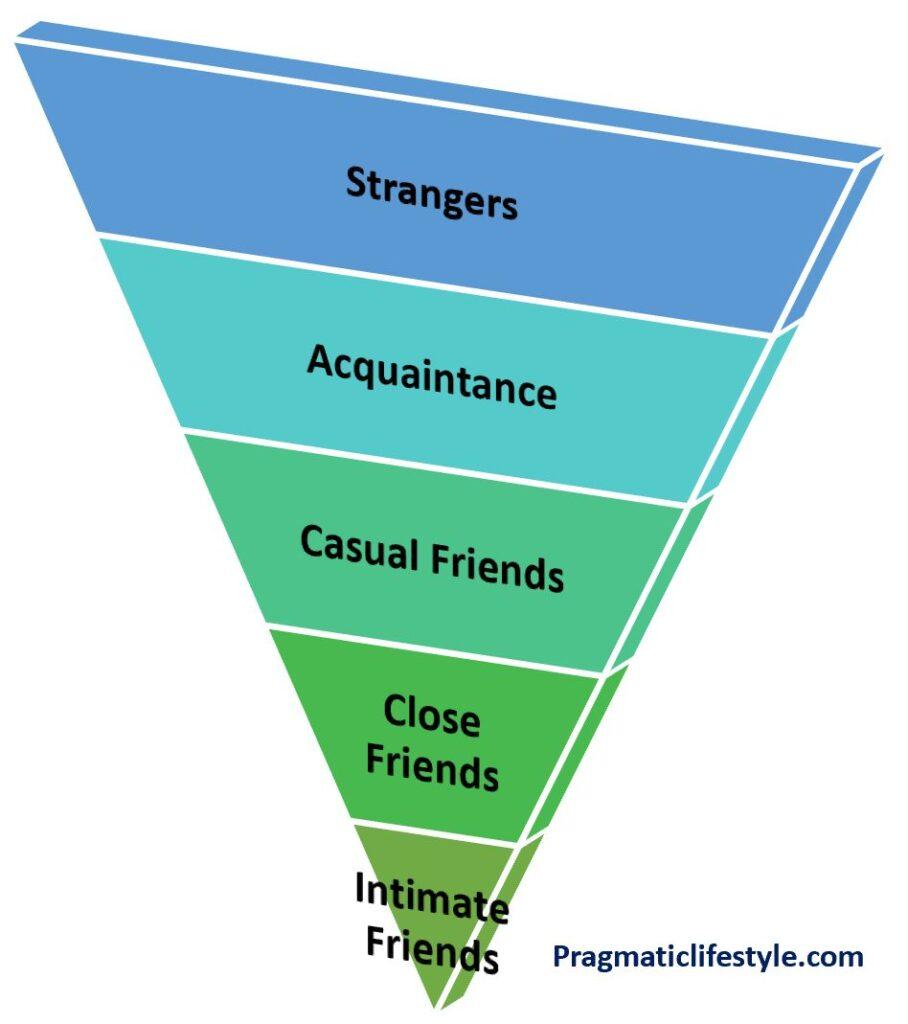Parenting teenagers is as challenging as taking care of a newborn. From an adorable baby comes a feisty teenager, ready to show you and the world what they can offer. They’re starting to explore the world more independently. Part of their exploration is choosing who to befriend. Unlike children who select their friends based on the fun things they do together, teens base their friendship circle on many factors. Raising Children cites personality similarities and acceptance as a teenager’s deciding factors in making friends, to find someone who understands all your quirks and accepts them with no questions. Knowing how vital forming close friendships are essential for teens, how can we parents talk with teens about friendship? Here are the 6 things you should know as parents in broaching this tricky topic with your teen.
Related Reading:
- 11 Best Birthday Party Ideas for Teenagers
- 12 Jobs That Benefit Both Motherhood and Career in 2022
- 12 Things can Help Raise Kids with Diversity and Inclusion in Mind
- How to Talk and Teach Kids about Shaving (for Teen Boys and Girls)
- Top 10 High Paid Jobs for Women Career Consideration [2022]
- 8 Youngest Child Traits: Does Birth Order Matter?
- 11 Tips for a Meaningful Summer Holiday for Both Kids and Teens
- 8 Practical Tips to Help Teenagers in Career Selection
- 10 Ways to Be an Upstanders in Bullying
- 14 Script Example to Tell Kids About Separation and Divorce
- Teach Teens About Money (including credit card and mobile app)
- Talking About Birds and Bees (sex) to Your Kids: Tips for Every Parent
- Why Friendship is Important for Teenagers – 6 Must-Know Reasons

Table of Contents
6 Helpful Tips To Help Parents Talk with Teens about Friendship
1. Place Emphasis on Trust and Honesty
Trust and honesty are the two most essential components in any relationship. Whether the relationship is familial or romantic, it can’t thrive if these two elements are absent. Even in the most platonic of friendships, a certain degree of trust and honesty is involved. If you don’t trust that “friend,” you can’t be completely honest with him.

With that, it’s best to start talk about friendship with your teens based on the levels of friendship.
Strangers
This is considered the lowest stage of friendship as the persons involved do not know the other’s existence. The level of trust in this kind of relationship is considered non-existent.
Though the lowest, it’s the essential stage. Ever heard about “First impressions last?” If you make a good impression on a person, in this case, a classmate, you’re more likely to become friends. If you made a bad impression, a budding friendship would be the last on the list.
Acquaintance
You become a person’s acquaintance if you have general knowledge of who a particular person is. This is where most of your teenager’s classmates fall in to. Chances are they know each other by name from occasional interactions (think of group work or during lunch at the cafeteria).
Yet, when you ask your teen about his classmates, he’d probably tell you, “I don’t know” or “I’m not sure, but maybe….”If your teenager and his classmate find a common interest, they can move on to the next friendship level. Though the level of trust has increased, it’s not at a level where your teen can confide in that person yet.

Casual Friends
Once the teenagers have discovered their commonalities, they will likely meet more often. These interactions would be planned as they talk more about their common interests. Your teenager now trusts his classmate and opens up more to him. Whether they choose to become lunch buddies or join a club doesn’t matter, and what matters is whether this shared interest is enough to make them go past this stage. This is especially true after discovering qualities they deem undesirable.

Close Friends
Even if both teens discover those undesirable traits and still want to hang out more often, they have become close friends. With all those times they spend together, teenagers are bound to get to know more of each other.
They will start talking outside their shared interests, including personal and emotional topics. This is the stage where the teens begin to understand each other more deeply, but not on a romantic note. Both teens will better understand each other’s personalities and life goals. These topics are often awkward for casual friends to talk about.

Intimate Friends
When friends continue sharing life experiences, they have reached the intimate friendship level. Think of it like finding your sister or brother from another family, where teens become comfortable sharing thoughts without fear of judgment.
This is the friendship level where the teens deeply trust each other and won’t do anything to break that trust by being dishonest.
Knowing these levels of friendship will help you as a parent know where your teen is at with his relationship with his peers. You can teach your teen how to balance honesty and privacy if he’s uncomfortable sharing them.

2. Knowing The Traits of a Good Friend
Once you know how deep the teens’ friendship is, you can gently probe their dynamics more. These include what they usually do when they’re together and their interests. It’s like doing a subtle background check on your kiddo’s peer or peers.
From there, you can pick up clues about whether your teenager’s pal is a good or bad friend. Though it’s easy for us parents to spot early on whether that friend is a good influence, your teen might not.
They may describe feeling something off with that friend of theirs that they can’t pinpoint yet. This is where you can lay out the qualities that differentiate good peers from bad ones.
Reach Out has laid out the qualities that make a friend good or bad for your teen. Ask them if their friend listens to him genuinely, if they can share secrets, and if he’s supportive of his decisions. If your teen quickly answers “Yes” to all 3, that friend’s safe to be around.
If your teen’s answer is the opposite, then by all means, start asking open-ended questions. Or, if your teenager’s kind of secretive or aloof on the topic, start looking out for signs that he’s in a bad friendship.

3. Teach Them to Set Up Boundaries
Boundaries serve as limits on how your teenager interacts with their peers. Their primary function is protection — from pain, manipulation, or being taken advantage of.
While teens are now more assertive in exercising their independence, they find it hard to set boundaries with their peers. Even if their boundaries have been crossed, teenagers brush them off so they won’t lose this “friendship.” They don’t care if they get bullied or abused so long as they won’t become outcasts.
After all, friends for teenagers mean they belong, and they’re accepted. If your teens is in this situation, don’t become too emotional or drastic. Most likely, your kid will just shut you off and won’t confide in you anymore whenever he’s in trouble.
Talk with teens about friendship and help him find out what situations are uncomfortable for him. Maybe listing them on paper can help your teen put things into perspective. Or, you can present hypothetical scenarios to help him know what he wants or doesn’t want in a friendship.
Once these boundaries are clear for your teen, teach him how to communicate them properly. Very Well family has some fantastic tips on how teens can effectively establish these boundaries.

4. It’s Okay to Have Different Sets of Friends
Since the teen years are the time for exploring, it’s not uncommon for them to have friends from various cliques. Though it can be confusing, it isn’t bad for your teenager to have peers with different personalities and interests.
Having friends of different backgrounds can help them build their socialization skills further. Pew Research’s study shows that most (98%) teens have friends of the opposite gender or are of a different ethnicity or race.
Chicago Tribune even points out that teens nowadays prefer having friends in groups rather than having only 1 or 2 close ones.
Since our teens choose their friends, our best role here is to guide them on how to select them. Go back to the basics — distinguishing between good and bad friends and setting boundaries. If your teenager also enjoys the company of that pal of his, then, by all means, support their friendship.

5. Use Personal Experience as an Example
Just like when they were kids, teens learn by example. If they see that what you say is consistent with what they see, they’re more likely to believe and trust your advice. This includes the way one should form friendships.
The best way to talk with teens is to share your own friendship experience. Tell him how you and your friends met and what fun adventures you have done together. You can even divulge how you and your peers resolve conflict, especially if he and his friends are having a spat.
No matter the issue, the important thing is you relate to what your child is experiencing. Actively listen to what he’s saying, and pick up clues about what your teen’s dealing with. Don’t let the generation gap hinder you from connecting with your teen in one of the most crucial aspects of his life.
If you want to set a good example, invite your friends on special occasions. That way, your teenager has a concrete reference point for good friendships. This will also become a chance to involve him in your actions. Think of it like a parent-teen bonding moment.

6. Teach the Best Ways to Handle Conflict
In any relationship, conflict is unavoidable. Each of us has different personalities, so we’re bound to clash despite our shared interests. Teenage friendships aren’t exempted from this situation.
It’s normal for your teens and his friends to have a rift sometimes. But he needs to learn how to handle this volatile situation properly to save their friendship. Emphasize that there is no perfect relationship. Do point out that conflict at times is healthy for their friendship to grow.
From there, you can ask for a gist of what exactly caused the rift. Refrain from being judgmental. If you do that, your teenager won’t approach you whenever he needs advice. Instead, provide a new perspective (guided by parental wisdom) on what he’s experiencing. As we have already gone through various experiences, especially in conflict management, we can explain how we solved them.
Refrain from blaming your teenager or his friend. Conflict resolution is not a contest on who is right or wrong, it’s learning to settle the differences and the miscommunication so everyone can learn from it.
So, if your teenager deems this friendship is worth saving, give him practical tips for resolving the conflict calmly. This is your best chance to model how to resolve quarrels as any adult should.
Yet, if this friendship makes your teenager feel negative about himself or being bullied, it’s okay to let go of it. Show him that staying in that toxic relationship does more harm than good. This will ultimately lead him to develop more self-confidence, which is vital for any teenager.
If your teenager and his friends drift apart for some unknown reason, let him know that it’s perfectly normal. Even if your teen wants to save the friendship, life changes make it more difficult to maintain it.
The important thing is your teen knows he can always start anew. There will undoubtedly be various opportunities to make new friends anywhere he goes. He only needs to explore these friendship opportunities to find peers he can keep for a lifetime.

Overall, Be Supportive!
Talk with teens about friendship can be downright scary for most parents. Most of us have been convinced by the myths about parenting teens that we fail to understand our child’s uniqueness and generalize them rather than understand their emotions and thoughts from their perspective.
Remember, teens, are going through various changes. Physical, emotional, psychological, and hormonal, to name a few. Add those teenagers who want to take more risks than what we parents can take, including how they choose friends.
All these and more can sometimes be hard for teenagers to keep up emotionally. Many things happen in their lives that their still developing coping mechanisms can take.
Hence, show your teen you trust the decisions he’s making. Though friends indeed are reflections of your teen’s personality, don’t judge them right away. Find out why his friends act that way (but only if he knows). That could also speak volumes as to your teen’s personality.
If he finds trouble with his friends, show him that you’re just one holler away and that there are ways to fix it. They can even get out of a bad friendship whenever they want.
After all, we parents aren’t the owners of our teens’ lives. They are the owners of their lives, including their decisions with career choices. Thus, do your best to parent your teenagers peacefully and talk with teens about the realities of friendship in a way they can understand.
About Me
Hi, there. I am Lin. Together with my husband and two kids, we live in the beautiful Netherlands in Europe. I am dedicated to self-development, creating quality time for the whole family, and fully supporting kids with their potentials and possibilities with all I have learned from engineering, MBA, and 10+ years of working experience in the energy sector.



2 Comments
Comments are closed.